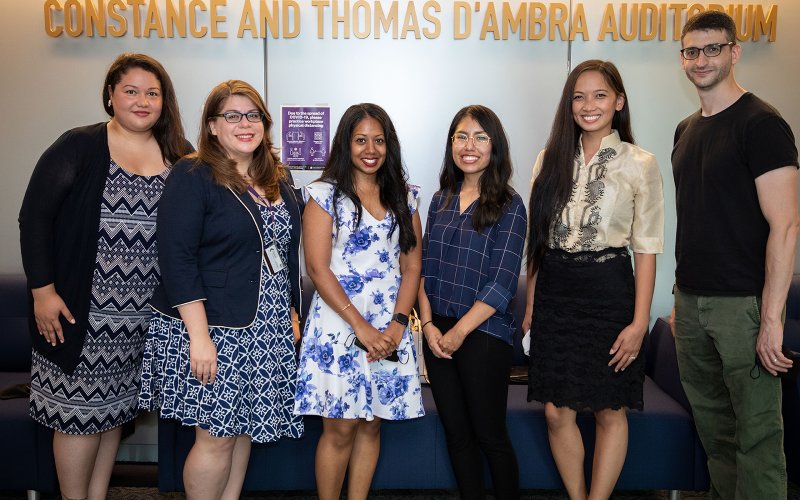New PhDs Foretell Greater Diversity in Behavioral Neuroscience

ALBANY, N.Y. (Aug. 24, 2021) — Several years ago, the Behavioral Neuroscience doctoral program in Psychology admitted its largest-ever cohort: six students, about twice the usual number. All have or will graduate within months of each other — somewhat unusual for a group that large.
What is more striking, however, is that five of these six outstanding students — collectively they have published 20 journal articles — are women of color.
“This is particularly noteworthy because women, and particularly women of color, are underrepresented in STEM fields nationally,” said Christine Wagner, professor and director of graduate programs in Psychology. “We are very proud of each of them and their achievements in neuroscience.”

The six students immersed themselves in the doctoral program’s focus on the neural basis of behavior and behavioral disorders, taught by a faculty whose expertise includes such areas as the brain’s role in stress, addiction, development, cognition, fear and anxiety, depression, metabolism and dementia. These areas of study are reflected in the students’ dissertations:
- Lori Colon — neural and hormonal basis of sex differences in fear learning
- Rose De Guzman — postpartum changes in expression of stress-related genes in brain
- Jason Jacobskind — effects of methamphetamine on brain regions controlling stress and stress-related behavior
- Melanie Lolier — effects of synthetic progestins on neural development and cognitive behavior
- Joanna Medina — neuroendocrine mechanisms underlying postpartum stress resilience and susceptibility
- Natalie Odynocki — long-term retention of fear memories in development and adulthood
Realization of a UAlbany Goal
The graduation of six PhDs who are women of color aligns with a key goal of UAlbany’s Strategic Plan. Associate Professor Andrew Poulos noted that it has added significance, as well. “This diverse group of scholars not only represents a fundamental identity of our university but also a beacon for the future identity of the field of neuroscience,” he said.
“The graduation of this large cohort in the behavioral neuroscience program is testament not only to their talent, hard work and dedication, but also to a supportive and encouraging culture within the program,” said Kevin Williams, dean and vice provost of the Graduate School. “To have five women of color receive their PhD degrees in a STEM discipline at the same is truly remarkable. The students, faculty and staff in the program have a lot to be proud of.”
Futures of Accomplishment and Purpose
Associate Professor Damian Zuloaga indicated that this group of students made the culture for teaching and learning particularly vibrant. “This cohort has truly been a pleasure to teach and mentor,” he said. “I am confident they will all be successful in the career paths they choose.”
Several of the students said they look back in gratitude and forward with special purpose. “As a first-generation student pursuing a PhD in a STEM discipline, a strong support system consisting of my family, faculty mentors and graduate student cohort has been pivotal to my success at UAlbany,” said Joanna Medina, who added she looked forward to “continuing to represent women of color in the field of neuroscience” as a Provost’s Postdoctoral Fellow at the University of Pennsylvania’s School of Medicine.
“I am grateful that my parents, who emigrated from the Caribbean, instilled in me the value of hard work and perseverance at a young age,” said Melanie Lolier. “These qualities, as well as sound academic guidance and mentorship, have been critical to successfully earning my PhD. I hope to share my experiences to encourage and mentor other minorities and women in their pursuits of the sciences.”




